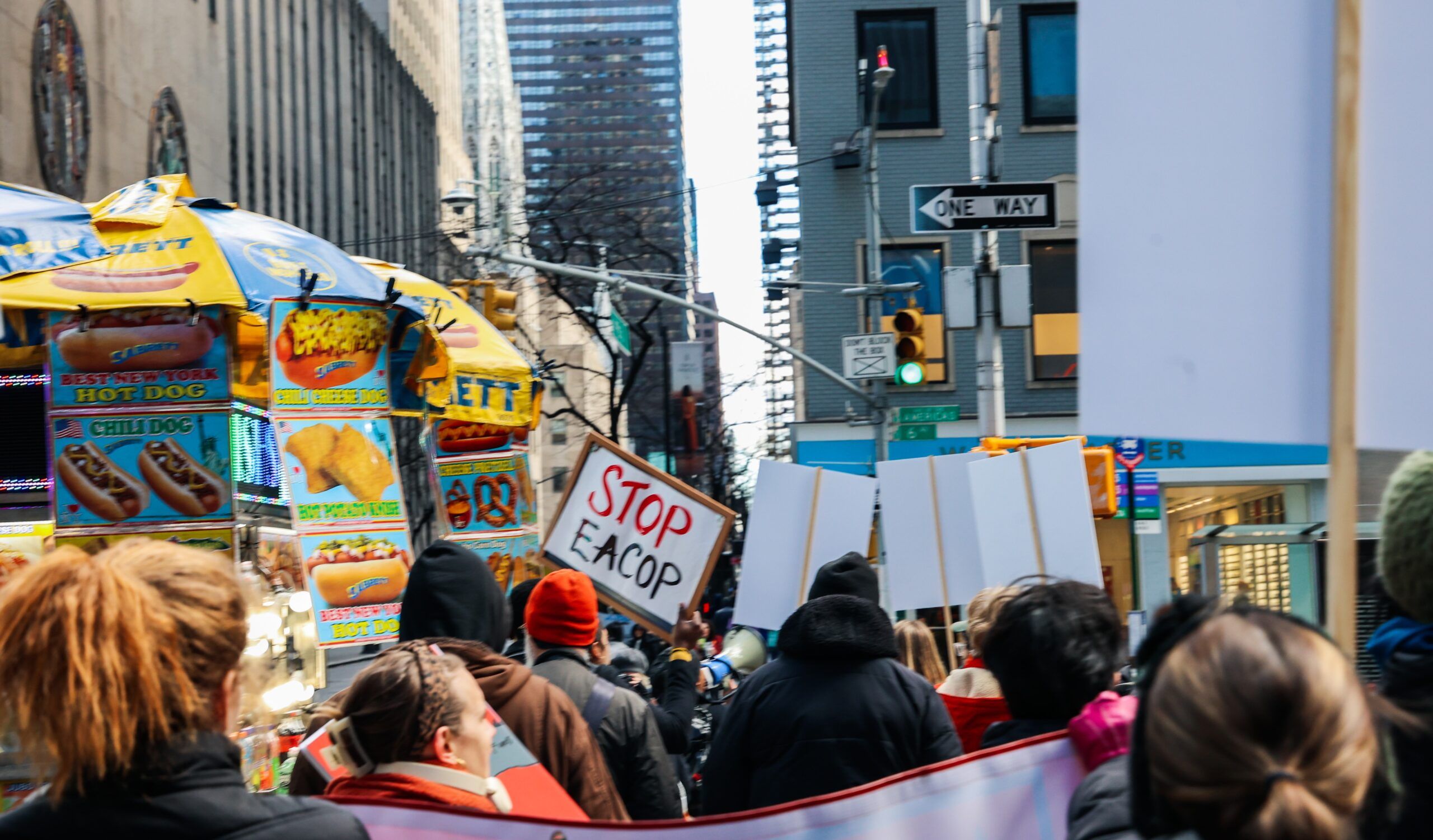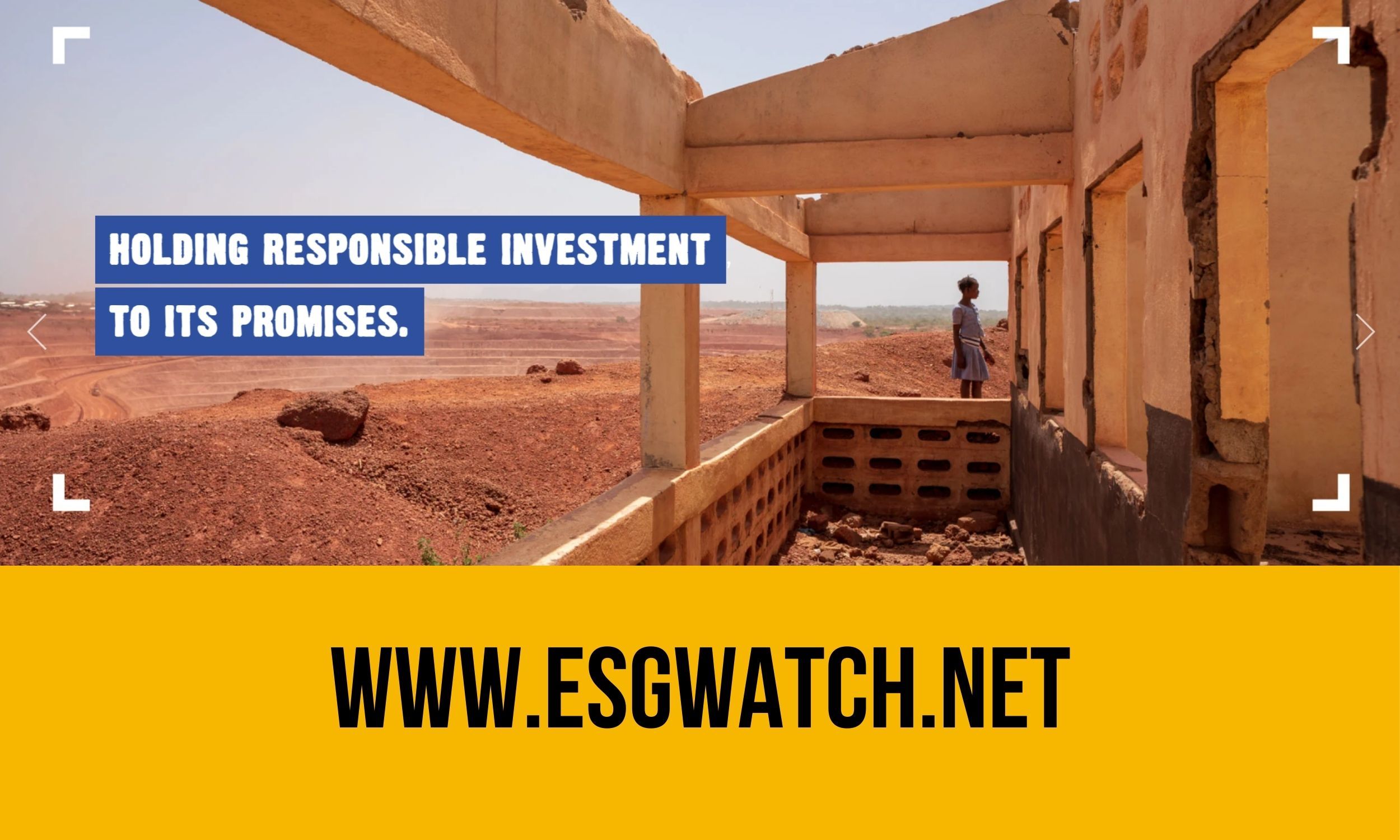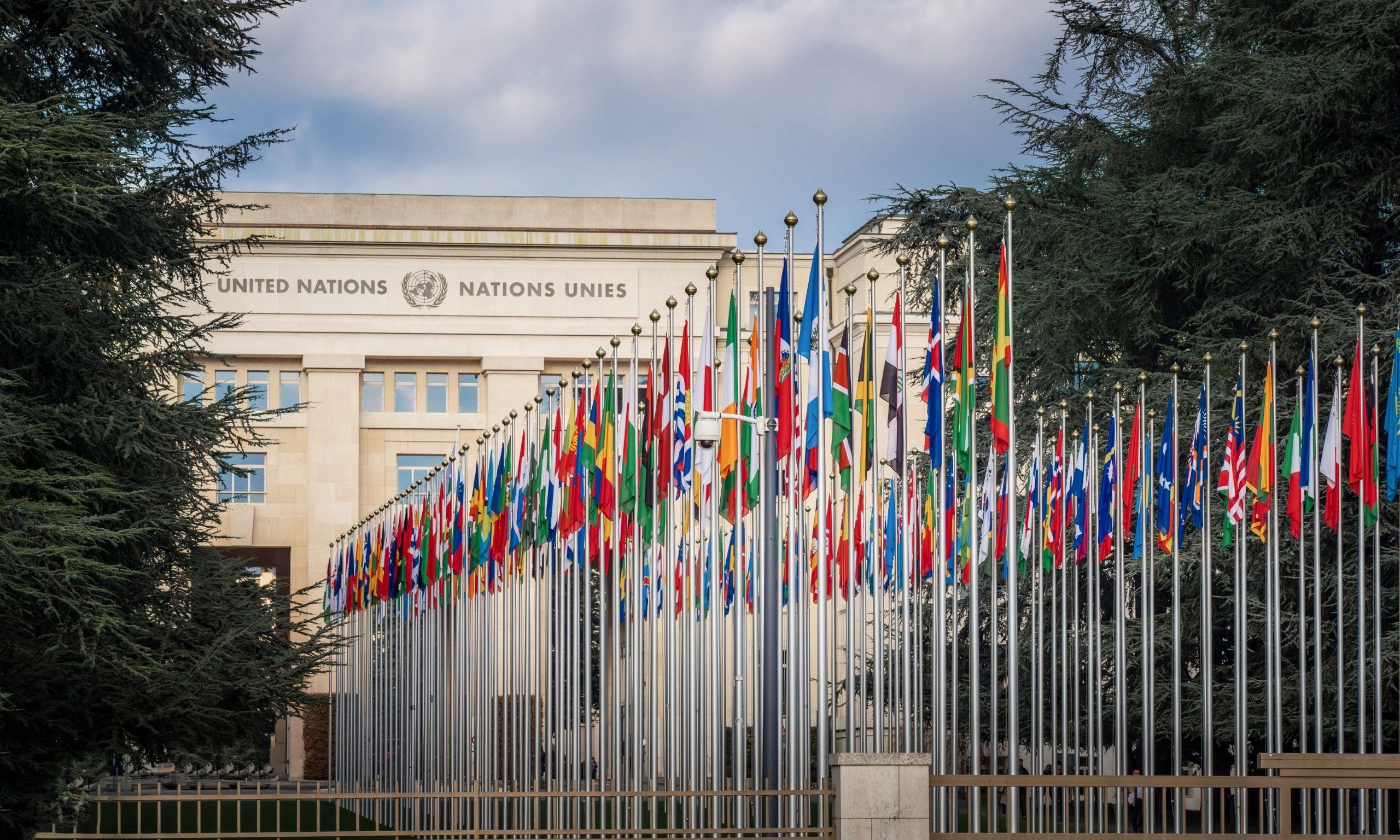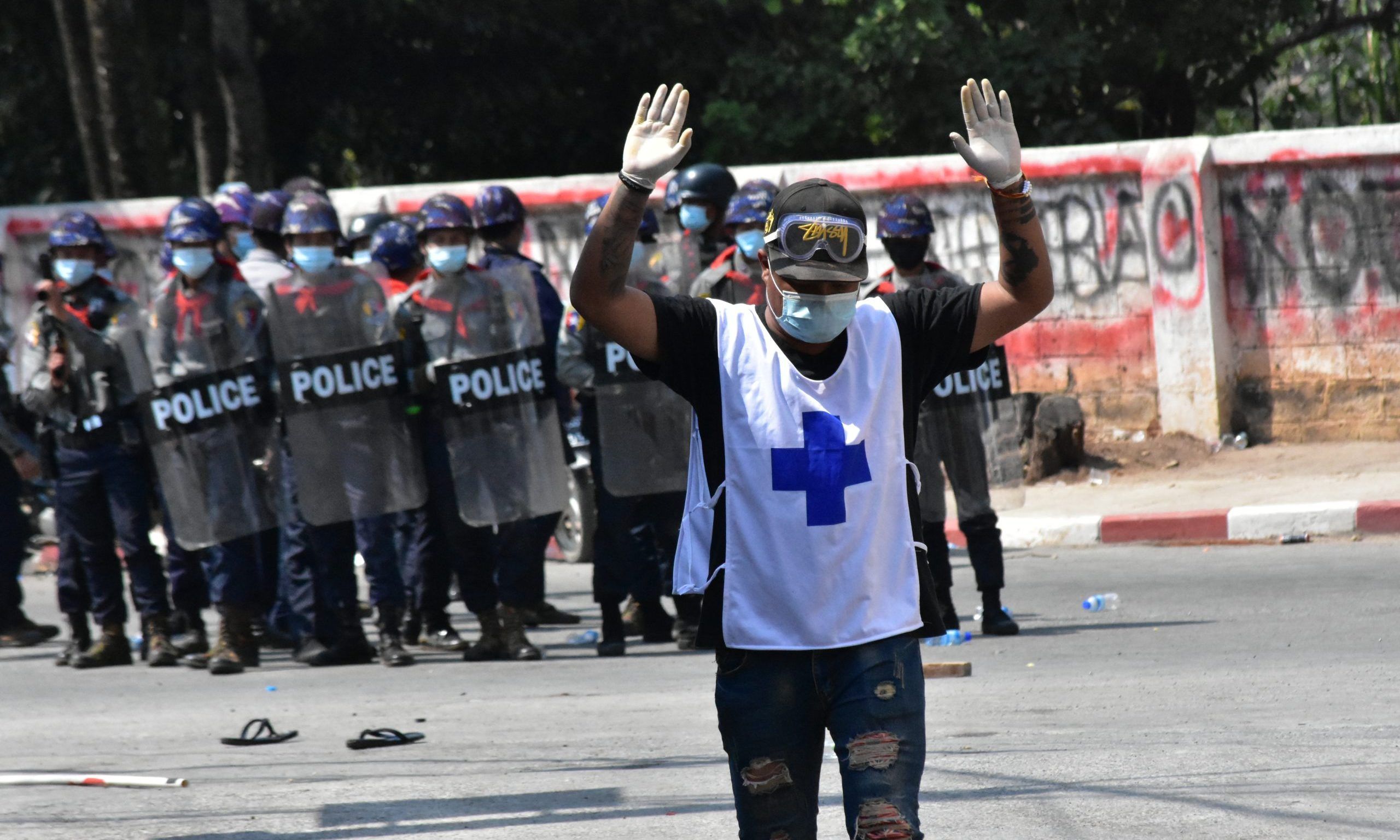MSCI, FTSE Russell and S&P Dow Jones Indices are giants of the “responsible investing” industry, but according to complaints filed with the US, UK and Dutch governments, the firms are violating OECD guidelines for responsible business conduct by helping direct investments labeled “ESG” to dozens of companies linked to Myanmar’s military.
To read this release in Bahasa Indonesia, click here.
MSCI, FTSE Russell and S&P Dow Jones Indices, leading providers of investment indexes tailored for Environmental, Social and Governance (ESG)-focused investing, are violating the OECD Guidelines for Multinational Enterprises on Responsible Business Conduct by promoting ESG-labeled investment in companies linked to Myanmar’s military. This is according to complaints filed this week by Inclusive Development International, Alternative ASEAN Network on Burma (ALTSEAN-Burma) and Blood Money Campaign of Myanmar (BMC). The complaints were submitted to the U.S., U.K. and Dutch National Contact Points for Responsible Business Conduct, which are government offices tasked with handling complaints alleging noncompliance with the OECD Guidelines for Multinational Enterprises. The complaints outline how each of the three firms has failed to uphold its human rights due diligence responsibilities and failed to use the considerable leverage it has over companies listed on its ESG indexes to address serious human rights risks and impacts stemming from those companies’ ties to the Myanmar military.
“MSCI, FTSE Russell and S&P Dow Jones are gatekeepers for trillions of dollars in ESG-labeled investment and the reputational benefits that companies gain from that investment. Under the international framework on business and human rights, they have a responsibility to use that leverage to ensure that the companies they are promoting as ‘responsible investments’ are not involved in human rights abuses,” said Natalie Bugalski, senior legal and policy director at Inclusive Development International. “Instead, they’re directing enormous sums of ESG-labeled capital to companies that are enabling violence and repression in Myanmar, without any attempt to prevent or mitigate this abuse.”
“Advocates in Myanmar and the diaspora are risking their lives to fight for human rights and democracy in their homeland. It’s devastating to know that companies at the top of the ESG investing industry are contributing to the violent and often deadly repression of their fight and the ongoing atrocity crimes in the country,” said Debbie Stothard, founder and coordinator of ALTSEAN-Burma.
MSCI, FTSE Russell and S&P Dow Jones Indices construct lists—known as indexes—of companies they consider to have rated highly on ESG factors, which greenlights those companies for inclusion in ESG-labeled investment funds (i.e., funds with names that include phrases like “ESG Leaders” and “ESG Screened”), which are marketed to investors as socially responsible. But Inclusive Development International’s research shows that the ESG indexes provided by these three firms systematically fail to accurately capture and reflect companies’ human rights track records. As a result, investment funds that are modeled on those indexes are littered with companies that are linked to serious human rights abuses, including in Myanmar.
“There is no question the regime is propped up by these multinational corporations that directly and indirectly provide Myanmar’s military with funding, arms and legitimacy on the international stage,” said Noh Noh, a pro-democracy activist from BMC. “That’s why we are calling on international business—and the ESG investing industry in particular—to sever its ties with the junta.”
Myanmar’s military is responsible for genocide and crimes against humanity according to UN human rights experts, who have called on businesses and investors to sever ties with the military. Yet, according to the complaints filed today, ESG-labeled investment funds managed by Blackrock, Vanguard, State Street and others, which are modeled on indexes created by MSCI, FTSE Russell and S&P Dow Jones Indices, own at least $13 billion worth of shares in dozens of companies that maintain such ties. Those companies include weapons dealers that are arming the regime (e.g., Bharat Electronics, which has supplied arms, radar systems and communications technology to the Myanmar military; and Wärtsilä, a Finnish company that is also reportedly involved in weapons sales to the military), tech firms serving the military-controlled national police force (including Axiata Group of Malaysia, which has a network of mobile towers that are used by the military, Alphabet and Apple, both of whose app stores are used by military-linked companies to promote their products), and others that direct profits to the military allowing it to surveil and violently crush dissent. (A full list of companies is included as an annex to the complaints, which can be found here.)
Human rights responsibilities of ESG index providers
Investment index creators exercise an incredible amount of influence over investment flows. As former chairman of the U.S. Securities and Exchange Commission Robert Jackson has said: “Fundamentally, millions of American families don’t choose what they invest in, an index provider chooses what they invest in.” Among index creators, those that create and sell ESG indexes hold an exceptional amount of leverage over companies that want to be added to or remain on those indexes. That leverage is derived not only from the ability to facilitate or restrict investment in those companies, but also from the ability to bestow reputational benefit upon the companies that are included in an ESG index.
A recent paper published by FTSE Russell cites research finding that engagement by an ESG index firm and threat of expulsion from an ESG index doubled the probability that a firm failing to meet environmental criteria for inclusion on the index would comply within a three-year period. Another study found that companies adjusted their behavior in response to ESG index criteria. These studies demonstrate the considerable leverage held by ESG index firms. As a senior representative from MSCI told Inclusive Development International, “Companies often come to us asking what they need to do to stay on an ESG index.”
Under international human rights standards, ESG index providers have a responsibility to use their leverage to prevent abuses and remediate harms. As the complaints filed today demonstrate, MSCI, FTSE Russell and S&P Dow Jones Indices have failed to do so.
Inclusive Development International began engaging with MSCI, FTSE Russell and S&P Dow Jones Indices about these issues two years ago, around the one-year anniversary of the deadly coup in Myanmar. At the time, an estimated 2,500 people had died as a result of the coup and the violent crackdown on democracy activists that followed. Two years later, the death toll has surpassed 4,000 and none of the three firms has given any indication that it has taken steps to fulfill its human rights responsibilities. This is despite our ongoing communications alerting the firms to their exposure to specific companies doing business with the military and their obligation under the OECD Guidelines to use their leverage with these companies to address the serious human rights risks and impacts these companies are contributing to.
Additional Resources




